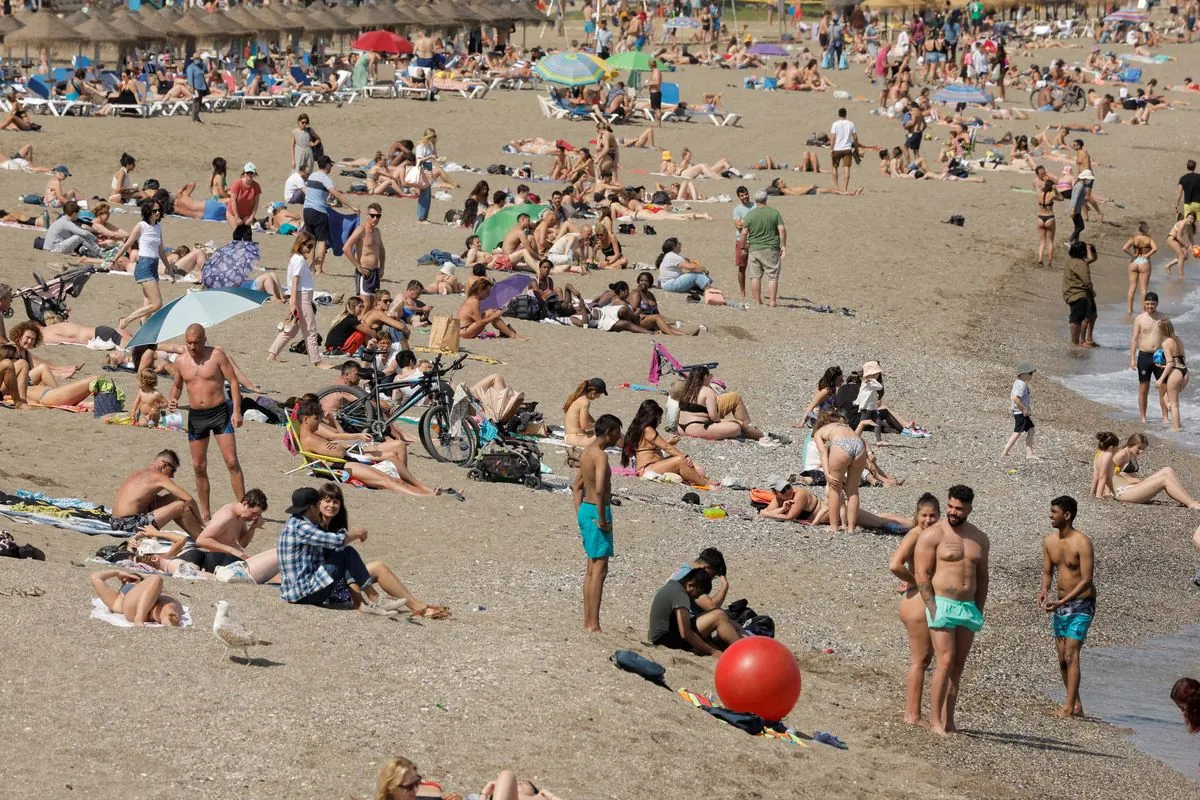Spain's Tourism Boom Persists Despite Anti-Tourist Protests
Spain welcomed a record 10.9 million visitors in July 2024, driven by British and German tourists. The surge continues despite anti-tourism protests, highlighting the sector's resilience and economic importance.

Spain's tourism industry has demonstrated remarkable resilience, achieving record-breaking visitor numbers in July 2024 despite ongoing anti-tourist protests. The country, renowned for its rich cultural heritage and diverse attractions, welcomed an unprecedented 10.9 million visitors, marking a 7.3% increase from the previous year.
British and German tourists were the primary drivers of this surge, contributing significantly to Spain's economic growth. This influx is expected to boost the nation's economic expansion to 2.4% in 2024, surpassing projections for the eurozone and Germany. Spain's tourism sector, which accounts for approximately 12% of the country's GDP, continues to be a crucial economic pillar.
The National Statistics Institute reported that foreign visitors spent €71 billion in the first seven months of 2024, an 18.6% increase from the previous year. German tourists, despite economic challenges at home, increased their spending in Spain by nearly 10%, averaging €1,340 per visit. British visitors, who make up one-fifth of Spain's tourist population, spent an average of €1,389 per trip, a 7.5% increase from the previous year.

These figures underscore the enduring appeal of Spain as a tourist destination. With 48 UNESCO World Heritage Sites, the third-highest number globally, and over 8,000 kilometers of coastline, Spain offers a diverse range of attractions. Popular destinations like the Costa del Sol and the Canary Islands continue to draw millions of visitors annually.
However, the tourism boom has not been without controversy. Anti-tourism protests have occurred in various parts of the country, including Barcelona, where demonstrators sprayed tourists with water pistols in July. In Galicia, known for its Celtic heritage, protesters caused traffic disruptions to highlight concerns about overcrowding.
"The protest is designed to show the conflict between the popular occupation of the beaches and the privatisation of spaces such as the America's Cup."
Despite these protests, the tourism industry remains robust. In Binibeca Vell, a picturesque village on Menorca, residents voted against a total ban on tourists, opting instead for extended visiting hours. This decision reflects the complex relationship between local communities and the tourism sector.
Pedro Fiol, president of the Association of Balearic Travel Agents, emphasized the importance of tourism for the local economy: "We've all got to make a living and that living, for the vast majority of people, comes from tourism."
As Spain continues to navigate the delicate balance between economic benefits and local concerns, the tourism industry's resilience remains evident. With attractions like the Sagrada Familia in Barcelona receiving over 4.5 million visitors annually and events such as the Running of the Bulls in Pamplona drawing over a million spectators, Spain's appeal as a tourist destination shows no signs of waning.


































